QuestionI am fairly new to wildlife rehabilitation but have volunteered with a wildlife refuge in the Florida panhandle for about 2 years. There are not any vets in the area that specialize in wild rabbit care, which is why I am searching the internet.
I have two 4-week old wild cottontails that I have had since they were about 5 days old (there were three originally and I lost the "runt" about 4 days ago.) I have fed them a regimine of KMR and Bene-Bac; after their eyes opened I began slowly adding timothy hay, pellets, clover and grasses.
One appears to be doing well with no problems but the other one all of a sudden yesterday began falling on his side and has begun mushy feces and diarhhea started today.
I began antibiotics yesterday but was hoping that I could find someone that might be able to shed some light on what might be going on.
Is this anything that you are familiar with or can offer any help with?
I appreciate your time... thank you!
AnswerDear Diane,
With baby cotties, there can be so many reasons for general weakness and falling over that it would be hard to list them. Infection would top my list. When my baby hares (jackrabbits) get mushy stool, we've almost invariably been able to trace the problem back to an upper respiratory infection or pneumonia. The stress of this illness causes GI tract slowdown in almost any lagomorph, and the wildies seem especially sensitive.
I've found that to stop really nasty diarrhea in a wild baby hare or cottie, a multi-pronged approach is critical:
1. A fluoroquinolone antibiotic (Bayril (enrofloxacin) or ciprofloxacin) at an initial dose of 20mg/kg for five loading doses, then scaled back to 15mg/kg for a minimum of 14 days.
2. Barium (use 0.1-0.2cc for a very wee cottie--no more! This stuff can really plug them up, but it can save their lives by soothing the intestinal lining and solidifying the stool).
3. Intestinal motility drugs (only after the barium has stopped the runny stool) to keep the GI tract normal. Reglan or cisapride at a rate of 1-2mg/kg twice per day works well.
4. Pediatric simethicone (0.3cc) to help gas pass.
5. Gentle tummy massage with an electric, vibrating massager such as the pet massagers you can get at PetCo or other outlets.
With the wild ones, I avoid NSAIDs, as they tend to be more prone to ulcers (I think they stress more easily!), so if you are going to give meloxicam or Banamine, I would accompany that with famotidine to control stomach acid.
I hope this helps the wee one! Please write back if you think I can help further.
Dana

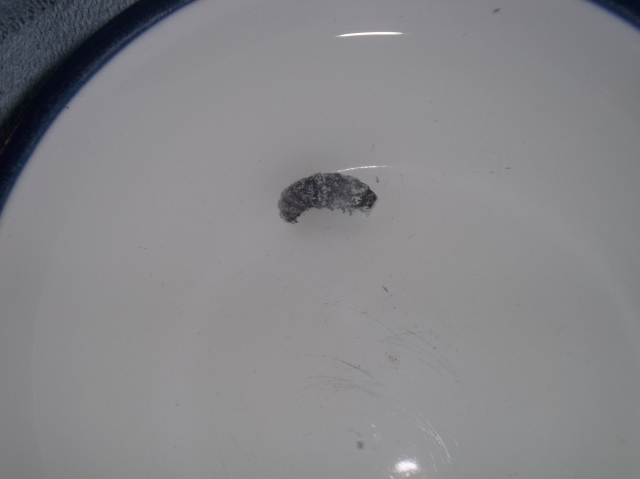 Maggot
Question
Hole on Hopper Maggot
We have be
Maggot
Question
Hole on Hopper Maggot
We have be
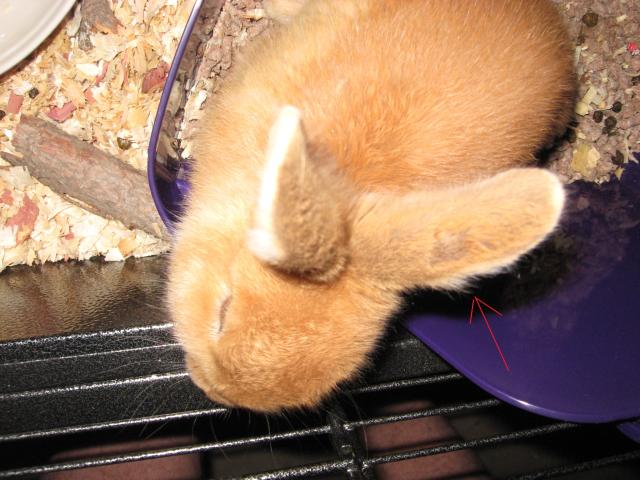 Rabbit Ear Problem?
Question
Rabbit Ear Problem
Hello there.
Our rabbit is
Rabbit Ear Problem?
Question
Rabbit Ear Problem
Hello there.
Our rabbit is
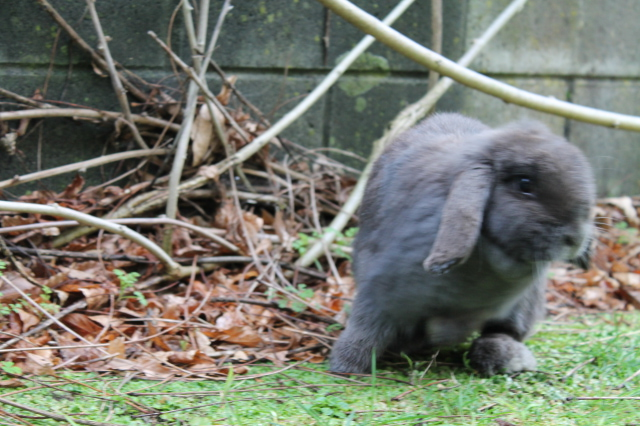 My Rabbit might be pregnant?
Question
Allie
Is my rabbit Allie pregnant? She
My Rabbit might be pregnant?
Question
Allie
Is my rabbit Allie pregnant? She
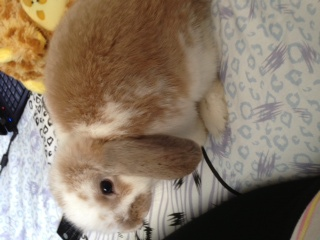 My Bunny Milo
Question
Milo
Hello, I have a male dwarf lop rab
My Bunny Milo
Question
Milo
Hello, I have a male dwarf lop rab
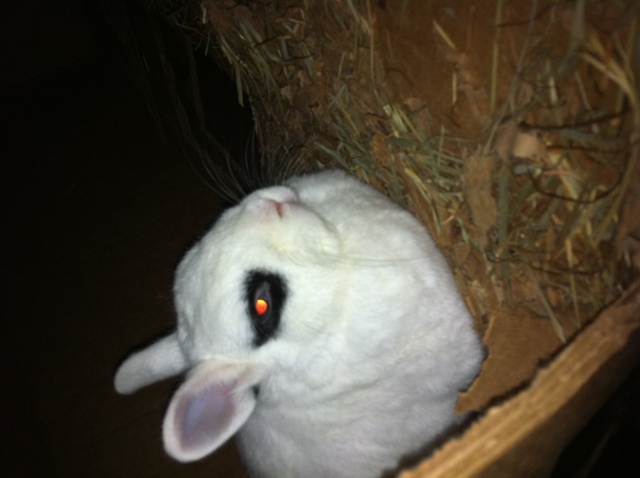 recently loss of a mate
Question
Bandit by himself
My bunny Nibbles pass
recently loss of a mate
Question
Bandit by himself
My bunny Nibbles pass